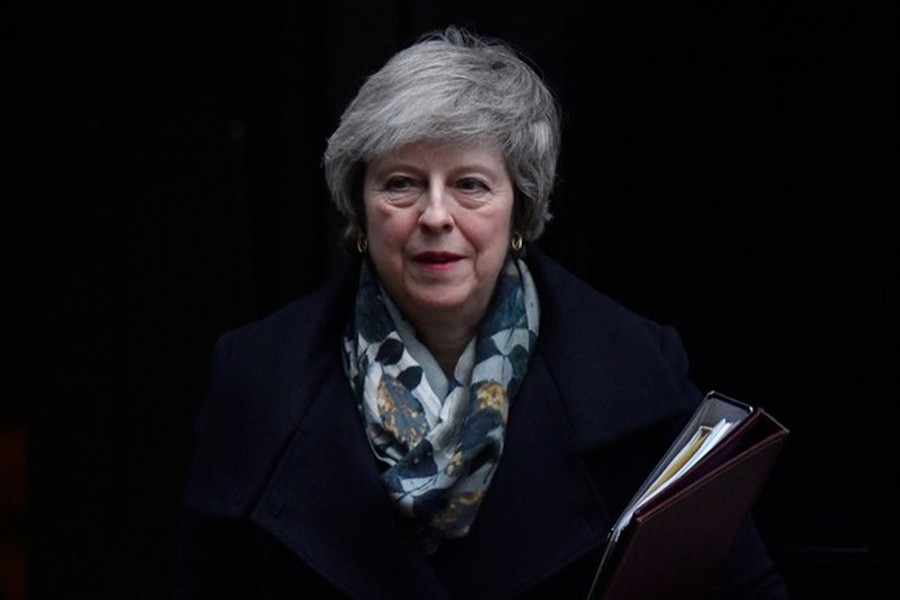Jeremy Corbyn has tabled a motion of no confidence in Theresa May, after she said MPs would not vote on her Brexit deal until the week of 14 January.
The PM had delayed the vote from last week, admitting she was set to lose.
Labour leader Mr Corbyn said on Monday it was unacceptable for MPs to wait a month to vote, adding the PM had led the UK into a "national crisis".
But No 10 sources told the BBC the government would not make time for the no-confidence vote.
Ministers would not "go along with silly political games", they added.
Mr Corbyn tabled the motion calling on MPs to declare they have "no confidence in the prime minister due to her failure to allow the House of Commons to have a meaningful vote straightaway" on the Brexit deal.
The motion focuses on Mrs May personally, rather than the government.
BBC political editor Laura Kuenssberg said the motion could have been embarrassing for Mrs May, but as things stood, ministers would not allow time for it to be debated.
She said No 10 had effectively "batted the ball back to Labour to see if they have the guts" to call for a vote of no confidence in the government as a whole.
Unlike a vote targeting the PM, a motion of no confidence in the government could bring about an early general election if it is supported by a majority of MPs.
The SNP, the Lib Dems, Plaid Cymru and the Greens have tried to force Labour to bring about that situation, by trying to amend Mr Corbyn's motion.
But Mr Corbyn said his aim in tabling the motion was to put pressure on her to have a vote on her Brexit deal this week.
Mrs May's Brexit deal sets out the terms of Britain's exit from the EU - on 29 March 2019 - and includes a declaration on the outline of the future relations between the UK and the EU.
But the deal only comes into force if both parliaments approve it.
Mrs May told MPs they would have the chance to vote on the deal she negotiated with Brussels in the third week of January.
A 'wasted' month
Mr Corbyn said by then a month would have been wasted since the original 11 December vote was postponed, with "not a single word renegotiated and not a single reassurance given".
"The deal is unchanged and is not going to change," he said.
"The House must get on with the vote and move on to consider the realistic alternatives."
However, Mr Corbyn came under fire from other opposition parties for limiting his no-confidence motion to the prime minister.
SNP leader Nicola Sturgeon tweeted: "Labour tabling a motion just in the PM rather than in the entire government begs the question, which Tory do they want to see as PM?"
And Nigel Dodds, of Northern Ireland's DUP, which has propped up the Conservative government since June 2017, said: "We are not interested in the parliamentary antics or play-acting of the Labour Party."
But Mr Corbyn told reporters late on Monday: "We haven't failed to trigger any process. It's this government that is denying Parliament the right to vote on this process, that's why I tabled the motion."
Mrs May appeared to have the support of pro-Brexit backbench critics who last week failed in a bid to oust her as Tory leader.
One of them, Steve Baker, said: "Eurosceptic Conservatives are clear that we accept the democratic decision of our party to have confidence in Theresa May as PM. We will vote against Labour in any confidence motion."
In other Brexit-related news:
#The SNP's Westminster leader Ian Blackford was granted an emergency debate on Brexit for Tuesday, having said Parliament needed to "take control of the situation and find a solution"
#Theresa May rejected reports she was taking advice from predecessor David Cameron on what to do in the event of a Brexit deadlock in Parliament
#More than 60 MPs from various parties wrote to the PM urging her to rule out a no-deal Brexit, saying it would do "unnecessary economic damage" to manufacturers
#Irish foreign affairs minister Simon Coveney said Brexit might have to be delayed if the UK submitted an "entirely new" withdrawal proposal
In a Commons statement, Mrs May said MPs would resume the debate - halted last week - in the week of 7 January. The "meaningful" vote is due to take place the following week.
Mrs May told MPs: "It is now only just over 14 weeks until the UK leaves the EU and I know many members of this House are concerned that we need to take a decision soon."
She said she had won fresh guarantees at last week's EU summit over measures to avoid a hard border on the island of Ireland and she hoped to secure additional "political and legal assurances" in the coming weeks.
Earlier on Monday, an EU spokesman said it had provided the "clarifications" requested on the contentious issue of the Northern Ireland border backstop and "no further meetings were foreseen".
'PARLIAMENTARY SHENANIGANS'
By Laura Kuenssberg, BBC political editor
Keeping up? I don't blame if you if it all seems like procedural nonsense. And frankly, you might not be completely wrong.
But what it suggests is that despite widespread frustration on all sides, Jeremy Corbyn is so far stopping short of taking a real shot at toppling May's administration, and is unlikely to do so unless, and until, he thinks he can win.
For her part, Theresa May is unlikely to budge on her plan, unless and until she is forced to do so.
To the immense irritation of both their supporters and their rivals, even though the Brexit clock is running down, neither of the main party leaders are willing to take the kind of radical move that might unblock the gridlock.


